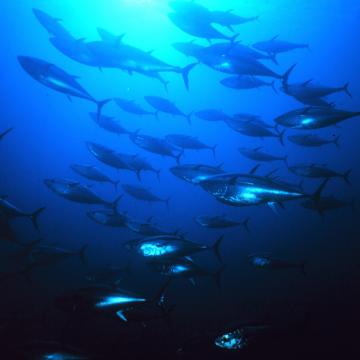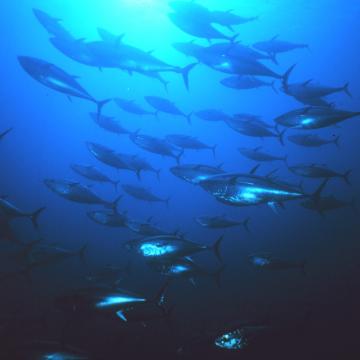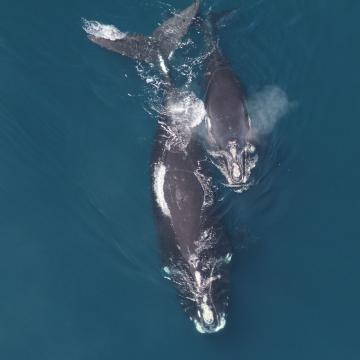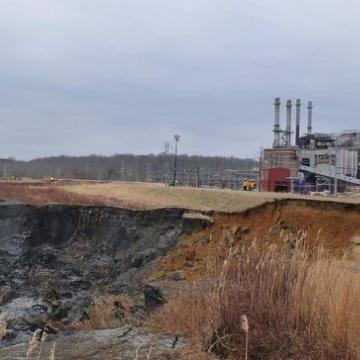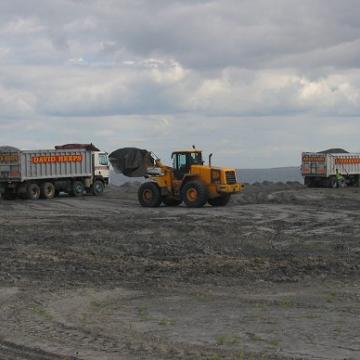-
NewsScholars across Duke are working on the complex regulations governing the use of the ocean, and studying the impact of industry on its teeming diversity of life.
-
NewsThe ratio of carbon isotopes in three common species of tuna has changed substantially since 2000, suggesting major shifts are taking place in phytoplankton populations that form the base of the ocean’s food web, a new international study finds.
-
NewsInhaling dust that contains fly ash particles from coal combustion has been linked to lung and heart disease, cancer, nervous system disorders and other ill effects. But tracking the presence of coal ash in dust has been a challenge for scientists.
-
NewsThe ongoing transition from coal to natural gas and renewables in the U.S. electricity sector is dramatically reducing the industry’s water use, a new Duke University study finds.
-
NewsScientists at Duke University’s Marine Geospatial Ecology Lab and other leading marine research institutions worldwide have created an open-access online database that maps the movements of migratory species through the open ocean.
-
NewsAs new moms, North Atlantic right whales tone down their underwater vocalizations and “whisper” to their young calves to avoid attracting predators, a new study by scientists at Syracuse University, Duke University and NOAA Fisheries’ Northeast Fisheries Center finds.
-
NewsLocal conservation can boost the climate resilience of coastal ecosystems, species and cities and buy them precious time in their fight against sea-level rise, ocean acidification and warming temperatures, a new paper by scientists at Duke University and Fudan University suggests.
-
NewsWith the Environmental Protection Agency (EPA) poised to loosen coal ash rules for dry onsite storage and large fill projects, a new study from Duke University finds that leaving those contaminants exposed may significantly heighten the risk of toxic contamination to nearby soil and waterways.
-
NewsAllowing coal ash to be spread on soil or stored in unlined pits and landfills will raise the risk that several toxic elements, including carcinogenic hexavalent chromium, could leach out of the coal ash and contaminate nearby water supplies across the U.S., according to preliminary findings from a new Duke University study.
-
NewsIn his newest book, Sea Level Rise: A Slow Tsunami on America’s Shores, Orrin Pilkey paints an eye-opening picture of the impacts sea level rise will have on the United States by the end of the 21st century.
-
NewsJoseph S. Ramus, professor emeritus at Duke University’s Nicholas School of the Environment, has been awarded the Order of the Longleaf Pine, one of the highest civilian honors the State of North Carolina bestows.
-
NewsTropical and subtropical fish are taking up residence on shipwrecks and other sunken structures off the North Carolina coast. This pattern may continue or even accelerate in coming years given predictions of warming oceans under climate change, a new study co-led by Duke University scientists suggests.

